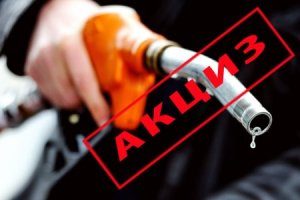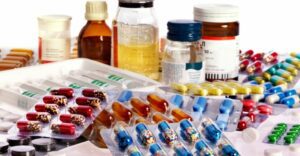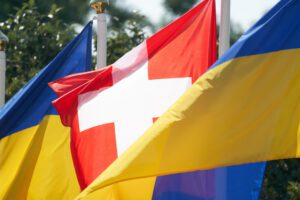
The Cabinet of Ministers of Ukraine by Decree No. 252 of March 11 approved the procedure for the formation and execution of local budgets during the period of martial law.
“This resolution simplifies budgetary procedures at the local level in order to ensure the functioning of the public sector and the vital needs of territorial communities during the period of martial law,” the Finance Ministry said in a statement on Saturday.
The agency said that, in particular, the document makes it possible to promptly respond to the needs of financial support for territorial defense measures, protecting the security of the population and the functioning of the public sector, utilities during martial law.
“Temporarily, for the period until the cessation or cancellation of martial law, checks by the State Audit Service of the implementation of local budgets are not carried out, and the ongoing checks are stopped,” the resolution also says.

President of Ukraine Volodymyr Zelensky said that the Verkhovna Rada should immediately abolish the value added tax and excise tax on fuel.
He noted that the Cabinet of Ministers has already taken several very important decisions. In particular, the complete abolition of value added tax and excise tax on fuel (gasoline and diesel) was agreed upon.
According to the head of state, this is being done not only in the context of the upcoming sowing campaign, but also based on the needs of all citizens.
“So that there is no shortage of fuel in the country and prices are stable. The government has done its part of the work. Now it is up to the MPs. They must immediately support this decision with their vote,” Zelensky said in a video message on Saturday.

The United States bans the supply of luxury goods to Russia, complicates the purchase of expensive goods for oligarchs in the country, U.S. President Joe Biden said on Friday.
Referring to the measures against representatives of major Russian businesses, Biden said the U.S. Administration is also going to make it harder to buy luxury goods in the United States for Russians.
“We’re banning export of luxury goods to Russia,” the U.S. president said.
He also said that new names of billionaires from Russia and their families will be included to the U.S. sanctions lists.
In addition, this decision also applies to Belarus. The U.S. Department of Commerce released a statement saying that its Bureau of Industry and Security has imposed restrictions on the export, reexport and transfer (in country) of luxury goods to all end users in Russia and Belarus, as well as to certain “Russian and Belarusian oligarchs.”
This decision is expected to come into force on March 11.

The Kusum Charitable Trust (India, part of the Kusum Group) donated 20 tonnes of medicines to Ukraine as humanitarian aid.
The Kusum group told Interfax-Ukraine that humanitarian aid will be sent to help the wounded and injured as a result of the war on the territory of Ukraine.
The list of drugs also included the necessary antibiotics for antipyretics.
“The first part of the aid, which is more than 20 tonnes of vital medicines for a total amount of more than UAH 6 million, was delivered by an Indian Air Force aircraft to a safe area and is on its way to Ukraine,” the Kusum group said.
“Kusum recognizes and appreciates the efforts of the Ukrainian Embassy in India, the Indian Foreign Ministry and the Indian Air Force for their support in delivering this humanitarian aid on time and with the utmost care,” the group said.
The Kusum group of pharmaceutical companies includes four modern plants: three in India and one in Ukraine, as well as two own research centers.

The Swiss Federal Council has decided to increase humanitarian aid to Ukraine and other countries of the region to CHF 80 million.
“In response to the refugee crisis, the Federal Council, at its meeting on March 11, decided to increase humanitarian assistance to Ukraine to CHF 80 million. With this contribution, Switzerland expresses its solidarity with the people of Ukraine in difficult times,” the Federal Council said in a statement on Friday.
A quarter of this amount will go to help Ukrainian refugees in neighboring countries. Three quarters are intended to help those who remained in Ukraine. The funds will benefit the Red Cross and Red Crescent Movement, UN agencies, international and local NGO and projects implemented by the Swiss Agency for Development and Cooperation (SDC) in Ukraine.
About 12 million people are currently dependent on emergency assistance as a result of Russia’s attack on Ukraine.

The amount of direct losses incurred by Ukraine’s infrastructure from full-scale Russian military aggression has already reached $119 billion, work is underway to compensate for them at the expense of the seized gold and foreign exchange reserves of the Central Bank of the Russian Federation, First Deputy Minister of Economy of Ukraine Denys Kudin has said.
“When the president’s office yesterday or the day before yesterday announced over $100 billion, this figure is somewhat clarified. It is $119 billion. Unfortunately, it will grow with every next day of the war,” he said on Ukrainian TV channels.
According to Kudin, one of the ways to compensate for losses and restore infrastructure is to work through cooperation with Western governments. “Western governments have already seized the gold and foreign exchange reserves of the Central Bank of Russia in the amount of $415 billion. In fact, this amount is almost enough to cover these direct one-time losses,” the first deputy minister said.
According to him, the Ministry of Economy expects that in the near future, together with partner governments of other countries, a legal mechanism will be found, how this money can go to Ukraine for further recovery.
The first deputy minister said that the Ministry of Economy from the first day began to count the losses that the state suffered due to Russian aggression. According to him, in addition to the direct approach to determining the damage (how much it will cost to restore bridges, roads, infrastructure facilities, hospitals, kindergartens, schools destroyed by Russia), there is a second approach – the amount of GDP losses.
“We see that in cities and towns where active hostilities are taking place, economic activity has decreased by 75%. In the rest of Ukraine, only every second business operates. This is a loss of 50% of economic activity,” Kudin said.
He added that most of the metallurgical plants, most of which are located in the east of the country, have ceased their activities. “The blocking of sea routes by the Russians, of course, does not make it possible to fully export corn, wheat, sunflower oil – traditional agricultural export products,” the first deputy head of the Ministry of Economy said.
According to him, among other ways for Russia to compensate for these losses is the judicial, claims work of the government of Ukraine against the Russian Federation in international courts. “We are talking about the International Criminal Court, and about the ECHR, and about commercial arbitrations around the world. In each of these courts, Ukraine files lawsuits against the Russian Federation,” Kudin said.
He said that the collection of evidence from Ukrainians about the destruction has begun in electronic form, since it is important to document every fact of destruction jointly by all the people so that this becomes the material basis for claims.
The first deputy head of the Ministry of Economy also named a third way to receive compensation for damage from the aggressor – “the way of reparations after the signing of a peace treaty and the actual surrender of the enemy.” “They [reparations] can be in two forms – in cash and in kind. In the form of reparations, they could receive energy resources and other types of material values that Ukraine needs,” Kudin said.
As reported, Ukraine’s GDP in 2021 for the first time amounted to about $200 billion.